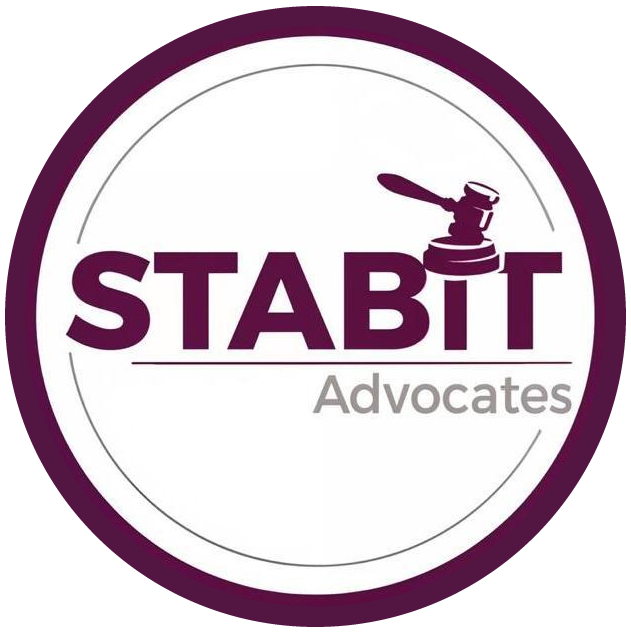The Remote Work Revolution: Navigating the Legal Landscape of the New Corporate Reality. A stabit…

Legal Guidance on Paying Taxes in Rwanda
September 17, 2024 10:36 am
Stabit Advocates is pleased to present this comprehensive legal guide on the procedures and regulations governing the payment of taxes in the Republic of Rwanda. This document aims to provide clear and detailed information to assist individuals and entities in navigating the legal requirements for tax compliance in Rwanda, ensuring adherence to all relevant laws and regulations.
Legal Framework
The legal framework for taxation in Rwanda is primarily established by the Law No. 016/2018 of 13/04/2018 on the Tax Procedures and the Law No. 026/2019 of 18/09/2019 on the Income Tax. These laws outline the obligations of taxpayers, the types of taxes levied, and the procedures for tax payment and compliance.
Types of Taxes
Rwanda’s tax system includes several types of taxes, each with specific regulations and requirements:
- Income Tax: Levied on the income of individuals and entities. The income tax rates vary based on the type of income and the taxpayer’s status.
- Personal Income Tax: Individuals are taxed on their employment income, business income, and other sources of income. The tax rates are progressive, ranging from 0% to 30%.
- Corporate Income Tax: Companies are subject to a flat tax rate of 30% on their taxable income. Special tax incentives may apply to certain sectors or investments.
- Value Added Tax (VAT): A consumption tax levied on the sale of goods and services. The standard VAT rate is 18%, with certain goods and services being exempt or subject to a reduced rate.
- Withholding Tax: Applied to specific types of payments, such as dividends, interest, and royalties. The withholding tax rates vary depending on the nature of the payment and the recipient’s residency status.
- Property Tax: Levied on the ownership of real property. The tax rate is determined by the local authorities based on the property’s value and location.
- Excise Duty: Imposed on specific goods, such as alcohol, tobacco, and petroleum products. The rates vary depending on the type of goods.
- Customs Duty: Applied to goods imported into Rwanda. The rates are determined by the East African Community (EAC) Common External Tariff.
Tax Registration
All taxpayers, including individuals and entities, must register with the Rwanda Revenue Authority (RRA) to obtain a Tax Identification Number (TIN). The registration process involves submitting the following documents:
- A completed registration form.
- A copy of the national ID or passport for individuals.
- A copy of the business registration certificate for entities.
- Proof of address.
Tax Filing and Payment
Taxpayers are required to file tax returns and pay taxes within the deadlines specified by the RRA. The filing and payment procedures vary depending on the type of tax:
- Income Tax: Annual tax returns must be filed by March 31st of the following year. Taxpayers can file their returns online through the RRA’s e-filing system.
- VAT: Monthly VAT returns must be filed by the 15th of the following month. VAT payments can be made online or at designated banks.
- Withholding Tax: Withholding agents must file monthly returns and remit the withheld taxes by the 15th of the following month.
- Property Tax: Annual property tax returns must be filed by December 31st. Payments are made to the local authorities.
- Excise Duty and Customs Duty: Returns and payments are made at the time of importation or sale of the goods.
Tax Incentives
Rwanda offers various tax incentives to promote investment and economic growth. These incentives include:
- Investment Allowances: Deductions for capital expenditures on qualifying investments.
- Tax Holidays: Exemptions from corporate income tax for a specified period for certain sectors or investments.
- Special Economic Zones (SEZs): Reduced tax rates and other benefits for businesses operating in designated SEZs.
Penalties for Non-Compliance
Failure to comply with tax obligations can result in severe penalties, including fines, interest on unpaid taxes, and legal action. The RRA has the authority to enforce tax compliance through audits, assessments, and collection measures. Taxpayers are encouraged to seek professional advice to ensure compliance and avoid penalties.
Tax Audits
The Rwanda Revenue Authority (RRA) conducts tax audits to ensure compliance with tax laws and regulations. Tax audits can be initiated for various reasons, including discrepancies in tax returns, anomalies in turnover, or random selection. The audit process typically involves the following steps:
- Notification: The taxpayer receives a notice from the RRA informing them of the audit. The notice outlines the scope and objectives of the audit.
- Preparation: The taxpayer is required to prepare and provide all relevant documents and records, such as financial statements, tax returns, invoices, and receipts.
- Field Audit: Most audits are conducted on-site at the taxpayer’s premises. The RRA auditors review the provided documents and may request additional information or clarification.
- Desk Audit: In some cases, the RRA may conduct a desk audit, where the review is done at the RRA offices based on the submitted documents.
- Draft Assessment: After completing the audit, the RRA issues a draft notice of assessment, also known as a rectification, note. The taxpayer has 30 days to respond to the draft assessment.
- Final Assessment: If the issues are not resolved, the RRA issues a final notice of assessment. The taxpayer has 30 days to appeal the final assessment.
- Appeal Process: The taxpayer can appeal the final assessment to the Commissioner General of the RRA. The appeal must be submitted within 30 days, and the RRA has 30 days to respond. If the dispute is not resolved, the taxpayer can further appeal to the Tax Appeals Tribunal and subsequently to the High Court and the Supreme Court of Rwanda [1].
Transfer Pricing
Transfer pricing regulations in Rwanda are governed by the Ministerial Order of 14 December 2020, which aligns with the Organization for Economic Co-operation and Development (OECD) Guidelines. These regulations apply to controlled transactions between related parties, both within and outside Rwanda, and aim to ensure that such transactions are conducted at arm’s length.
Key aspects of Rwanda’s transfer pricing regulations include:
- Scope: The rules apply to transactions between a resident person and its related parties, both domestic and international, as well as transactions involving a permanent establishment of a foreign entity in Rwanda.
- Arm’s Length Principle: Related parties must conduct transactions as if they were unrelated, ensuring that prices and terms are consistent with those that would be agreed upon by independent entities.
- Documentation Requirements: Taxpayers must maintain comprehensive documentation to support the arm’s length nature of their transactions. This includes details of the related parties, the nature of the transactions, and the methods used to determine arm’s length prices.
- Transfer Pricing Methods: Acceptable methods include the Comparable Uncontrolled Price (CUP) method, Resale Price Method (RPM), Cost Plus Method (CPM), Transactional Net Margin Method (TNMM), and the Profit Split Method (PSM).
- Penalties for Non-Compliance: Failure to comply with transfer pricing regulations can result in adjustments to taxable income and significant penalties. The RRA has the authority to make such adjustments if it determines that the prices applied in controlled transactions do not reflect arm’s length principles [2].
Dispute Resolution
Tax disputes can be resolved through administrative procedures or litigation. Taxpayers have the right to appeal against tax assessments or decisions made by the RRA. The appeal process involves:
- Administrative Review: Filing a written objection with the RRA within 30 days of receiving the assessment or decision.
- Tax Appeals Tribunal: If the dispute is not resolved through administrative review, the taxpayer can appeal to the Tax Appeals Tribunal.
- Judicial Review: Further appeals can be made to the High Court and the Supreme Court of Rwanda.
Conclusion
Stabit Advocates is committed to providing expert legal guidance to ensure that your tax obligations in Rwanda are met with full compliance to all applicable laws. For further assistance or legal representation, please contact our office.
If you love our article on “Legal Guidance on Paying Taxes in Rwanda,” check back here for more legal news
Contact Information
Stabit Advocates
Website: www.stabitadvocates.com
Email: info@stabitadvocates.com
Phone: +250 789 366 274
For more information or to discuss your case, please contact us at www.stabitadvocates.com.
This guide is intended to provide general information and does not constitute legal advice. For specific legal advice tailored to your situation, please consult with a qualified attorney at Stabit Advocates.
[1]: Information on tax audits in Rwanda is based on the Rwanda Revenue Authority’s procedures and regulations. [2]: Rwanda’s transfer pricing regulations are based on the Ministerial Order of 14 December 2020 and the OECD Guidelines.
Source:




This Post Has 0 Comments